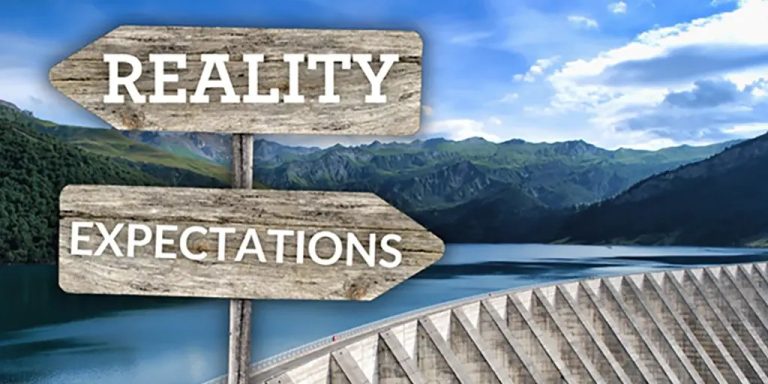Dr. Lars Schernikau (www.unpopular-truth.com/blog)
When we think of clean energy, hydropower is often at the top of the list. After all, it is renewable, seemingly reliable, and emits no direct greenhouse gases during operation. But, like anything in life and energy…the devil is in the details. It turns out hydropower's reputation as the ultimate clean energy source may be more myth than reality…
I recently wrote a blog post about hydropower that illuminated some unpopular truths…truths you won’t hear in sustainability advocacy or clean energy PR campaigns.
Is nature “crazy”?
At first glance, harnessing the power of flowing water sounds perfect. No fossil fuels burning, no air pollution, just steady, clean energy. But here's the twist: Large-scale hydroelectric projects often wreak havoc on ecosystems. Leveeing rivers disrupts natural water flows, affects fish migration, and causes flooding over vast areas, sometimes displacing entire communities. The environmental damage didn't end with construction…but it continued for decades.
And, don't forget greenhouse gases like methane… greenhouse gases believed to be 25 times more effective at trapping heat in the atmosphere. How do greenhouse gases work? As vegetation and organic matter decompose in the reservoir's stagnant waters, they emit greenhouse gases like methane. Is this a far cry from the squeaky clean image we were sold on?
Reliability is not always reliable
We like to think of water as reliable, but production depends on water availability, which in turn depends on weather patterns. During dry seasons, some countries that rely heavily on hydropower are finding themselves scrambling for backup energy sources.
Here's the irony: In a world increasingly influenced by weather patterns, hydropower will become less reliable. That's not a limitation of our expectations for our energetic future… now is it?
The Unpopular Truth About “Clean” Energy
In my detailed article on hydropower, I make it clear: no energy source is perfect. Every choice comes with trade-offs, and water and electricity are no exception. What we need are honest conversations about these trade-offs, not promises of a net-zero utopia.
Hydropower has a role to play, but we should approach it with eyes wide open to acknowledge its limitations and environmental impacts.
So, where does that leave us? We should rethink what we mean by “clean.” Is hydropower really as sustainable as we want it to be?
What do you think about hydropower? Clean energy savior or overblown disruptor? I'd like to hear your feedback.
Full article here: The “unpopular truth” about hydraulic power
PS: Feel free to subscribe to my blog, keep asking, keep learning, and keep pushing for transparency in the energy discussion.
Relevant
Discover more from Watt?
Subscribe to have the latest posts delivered to your email.
